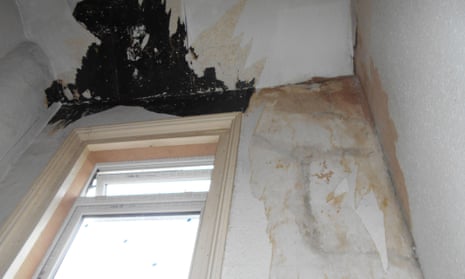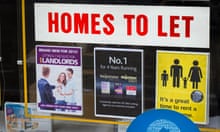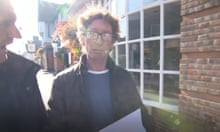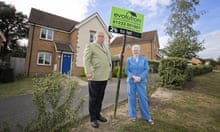The shadow chancellor has accused the government of presiding over housing legislation that is “not fit for purpose” and has thrown his support behind calls for a national registration scheme.
The comments were made after a Guardian and ITV News investigation revealed that convicted landlords who had been ruled unfit to rent out their properties were continuing to operate by exploiting loopholes in the law.
His remarks also follow a swift U-turn by the government. Theresa May has pledged to give tenants access to the government’s new rogue landlord database after the Guardian and ITV News investigation revealed that not a single name had been entered into the system in more than six months since its launch – and that even when landlords’ names were listed, the public would not be allowed to see them.
In an interview with the Guardian, John McDonnell said: “Landlord licensing is not fit for purpose and the problem of rogue landlords is extensive. We need an effective scheme, local authorities that are properly resourced and improved tenants’ rights.
“We are running a consultation to consolidate the powers available to local authorities and I would be in support of a national licensing scheme, in order to make regulation consistent for all landlords across the country and to stop the rogues from switching local authorities.”
The Guardian and ITV News investigation showed how rogue owners are collecting rents – often funded by taxpayers via housing benefit – despite being convicted of housing offences and failing to pass the “fit and proper” person tests required by housing legislation in England and Wales.

Because of the way the law is written – with the tests applying on a borough-by-borough basis – this is usually perfectly legal. It allows landlords to be banned in one borough and operate in another.
Landlord licensing came in as part of the the Housing Act, which came into force in 2006 and applies to England and Wales. Under that legislation, landlords must be considered “fit and proper” to be issued with a licence.
McDonnell’s comments have been echoed by experts in the sector, who in some cases have been calling for a complete overhaul of housing law, as well as other MPs.
Writing in the Guardian, David Lammy, the Labour member for Tottenham, said: “To fix this broken system, we need a complete rebalancing of the power relationship between landlords and tenants. The underlying issues of the housing crisis will only be solved by the construction of social and genuinely affordable housing on an unprecedented scale.
“Meanwhile, law-breaking and exploitative landlords on the private rental market should be recorded comprehensively and transparently on the government’s database. Local authorities must be given the teeth to properly punish the worst predators.”
Russell Moffatt, who led the London borough of Newham’s landlord licensing scheme and is now a director of the property data company Metastreet, added: “For me, the [solution] is clear. We should return selective licensing powers to local authorities, rather than requiring a lengthy and bureaucratic application to the secretary of state to introduce or renew any large scheme.
“We should consider introducing a national landlord registration scheme that could support and complement local licensing schemes by making it easier for local authorities to identify criminal landlords, while recognising the need for locally-led enforcement.
“And we should introduce stronger penalties for the very worst landlords [as well as] reviewing and simplifying existing regulation … to make the process less bureaucratic and costly for both councils and landlords”.
Until 2013, licensing typically applied to landlords renting out houses in multiple occupation (HMO). An HMO is a property with at least three people who are not from a single household but share facilities such as a toilet and kitchen. In England and Wales, a “large HMO” – with at least five people from more than one household who share facilities – must be licensed.
Selective schemes, under which local authorities can require landlords to have a licence no matter what type of property they were renting out, began to be introduced from 2013.
However, they vary hugely from local authority to local authority. There are currently 44 local authorities in England and Wales with selective licensing schemes running. Of those, only four cover the whole of the borough in which they are enacted, according to the property technology company GetRentr.
The communities secretary, James Brokenshire, said: “This government is committed to tackling rogue landlords who continue to exploit their tenants. Through fines and banning orders, local authorities are already equipped with strong powers, and I expect them to use them. Everyone deserves a safe place to call home, and I will continue to work with the sector to ensure this is the case.”









